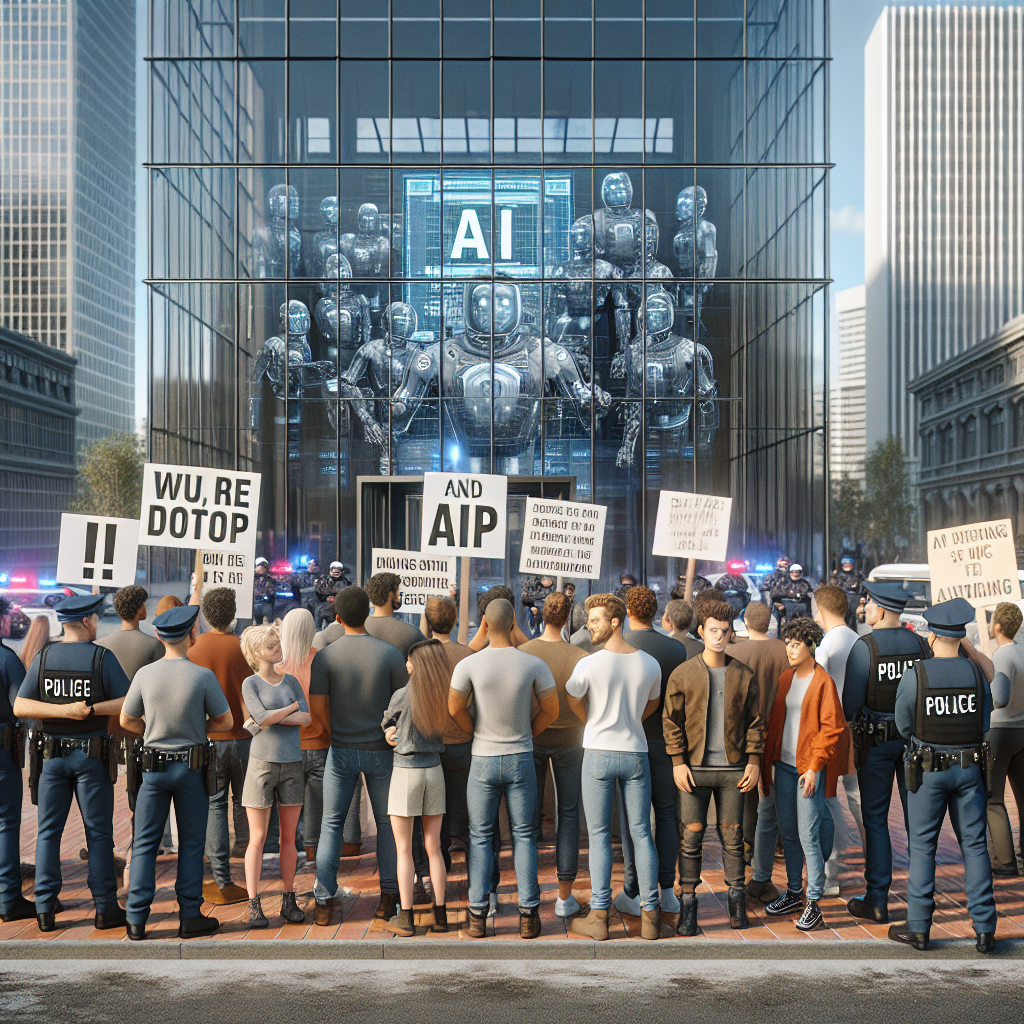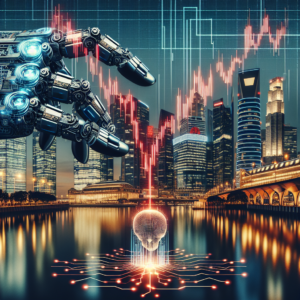Three Arrested in SF After Protesting AI Technology Outside OpenAI
In a significant turn of events in San Francisco, three individuals were arrested during a protest against artificial intelligence (AI) technology outside the headquarters of OpenAI. The protest reflects a growing concern within the community regarding the ethical implications and societal impact of rapidly advancing AI technologies. With AI becoming an integral part of various sectors, from healthcare to finance, the debate around its regulation and ethical use is gaining momentum.
The Context of the Protest
The protest occurred as part of a larger movement that seeks to create awareness and advocate for more stringent regulations surrounding AI technology. Activists argue that while AI holds immense potential, it also poses substantial risks, including issues of privacy, job displacement, and the potential for misuse in critical areas such as surveillance and autonomous weaponry.
Many protesters gathered outside OpenAI’s offices to voice their concerns over what they perceive as a lack of accountability in the development and deployment of AI systems. OpenAI, a pioneer in the field of artificial intelligence, has been at the forefront of developing transformative technologies that have the potential to change the world. However, critics are calling for a more measured approach that prioritizes ethical standards and societal well-being.
The Arrests
The situation escalated as the protest continued, resulting in three arrests. Law enforcement officials intervened when some demonstrators engaged in disruptive behavior, disrupting traffic and causing disturbances in the busy San Francisco area. While the specific actions leading to the arrests have not been detailed, the incident underscores the mounting tensions between advocates for technological innovation and those calling for caution in its implementation.
The arrests have sparked conversations about the effectiveness of peaceful protests and the right to voice dissent in a democratic society. Many supporters of the protest are emphasizing that their intention was not to cause disruption but to bring attention to critical issues surrounding AI technology.
AI Technology: The Double-Edged Sword
The rapid development of AI technologies has been heralded as a monumental leap forward for humanity. From enhanced data processing capabilities to the ability to automate complex tasks, the benefits of AI are undeniably impressive. Yet, this burgeoning technology also raises serious ethical questions and potential societal ramifications.
Job Displacement Concerns
One major concern surrounding AI development is the potential for job displacement. As AI systems become more capable and accessible, there is a fear that many traditional jobs may become obsolete, leading to significant economic and social challenges. Industries such as transportation, manufacturing, and customer service are especially vulnerable, which has prompted calls for retraining programs and safety nets for displaced workers.
Privacy and Surveillance Issues
Another pressing concern is the impact of AI on privacy and surveillance. Advanced AI technologies can process vast amounts of data, leading to potential infringements on individual privacy. The ability to monitor behavior through AI-powered surveillance systems raises ethical questions about the balance between security and personal freedoms. Activists argue that without adequate oversight, these technologies could be exploited in ways that threaten civil liberties.
Accountability and Regulation
Proponents of regulatory measures argue that the development of AI technology should be accompanied by comprehensive frameworks that ensure accountability. They advocate for laws that govern the ethical use of AI, emphasizing the need for transparency in AI algorithms and decision-making processes. The push for regulation has become increasingly urgent as AI systems are deployed in high-stakes areas, including healthcare and criminal justice.
The Future of AI: Finding Common Ground
As society grapples with the complexities of AI technology, there is a pressing need to find a balance between innovation and ethical considerations. The recent protests in San Francisco highlight the importance of public discourse on these issues, encouraging dialogue between technologists, policymakers, and the community at large.
Engaging in Dialogue
OpenAI and other tech organizations must engage with the public and stakeholders to address concerns and build trust. Hosting open forums, workshops, and discussions can provide a platform for individuals to voice their concerns and contribute to shaping the future of AI. Collaboration between technology companies, policymakers, and civil society is crucial to developing responsible AI systems that prioritize societal well-being.
Education and Awareness
In addition to dialogue, education and awareness play a vital role in addressing concerns about AI technology. By promoting understanding of AI and its implications, communities can make informed decisions and advocate for the ethical development of these technologies. Educational institutions and organizations can facilitate discussions that equip individuals with the knowledge needed to navigate the complexities of AI.
Conclusion
The protests outside OpenAI in San Francisco are a reflection of the ongoing debate surrounding AI technology and its impact on society. As we advance into an era increasingly dominated by AI, it is essential to ensure that ethical standards and public safety are prioritized. The recent arrests may have highlighted tensions, but they also serve as a reminder of the critical need for dialogue, transparency, and accountability in the tech industry.
By fostering a collaborative environment and promoting education on AI, society can work towards harnessing the benefits of this powerful technology while mitigating its risks. The future of AI is not just about technology; it is about people, ethics, and the collective responsibility we share to shape a better world.



